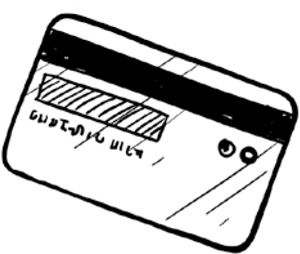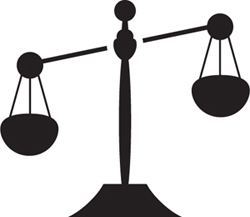Now I Know More (19 page)
Authors: Dan Lewis

THE UNDERGROUND WOMEN-ONLY CLUB
The Japanese term
chikan
means “street groping,” and the fact that there's a specific term for such an act speaks volumes about the extent of the problem. This is especially true when it comes to the subway. According to the
Guardian
, locals dubbed Osaka's railway the “Pervert Express,” while a 2001 survey of Tokyo high schoolers found that 70 percent of female students had been victims of at least one such assault on the trains in their area. Another survey, one conducted by the Tokyo police in conjunction with the East Japan Railway Company, found that two-thirds of women between the ages of twenty and forty had been groped at least once.
Over the past decade or two, officials have tried to change this, with stricter sentencing for those convicted of the crime and awareness campaigns to help bring the issue to light, but by and large, these have not been very successful. While awareness and enforcement efforts have led to an increased number of victims filing reports, many victims are embarrassed to come forward. The problem is still widely believed to be rampant if not entirely out of control.
One of the newer solutions? Segregated trains.
Specifically, many Japanese transit providers have taken to providing women-only train cars. These cars were first introduced in 2000, when a private railway that provides service from Tokyo to the suburbs tested the concept during late-night runs. Over the five or so years subsequent, most other railways adopted a similar option, finding the offering popular (which should surprise no one). Even a large percentage of men approve of the addition of these cars. As ABC News pointed out, crowded trains lead to potentially false accusations of
chikan
(or of victims wrongly accusing an innocent man of committing his neighbor's indiscretion), and at a fine of around $500 and up to seven years in prison, that's something best avoided.
Interestingly, there's no fine or threat of incarceration if a man gets on a women-only car. Doing so isn't illegal, according to
Japan Today
. The rule, to the extent that it truly is one, is enforced by shaming. In an odd sense, the same thing that keeps women from reporting
chikan
âembarrassmentâkeeps men from violating the commuting space of Japanese straphangers. The term “women only” is somewhat inaccurate as well, as young children, the disabled, and some other males are customarily allowed in the cars.
Regardless, the innovation has proven successful and has found a home in other transit systems throughout the world. India, Brazil, Mexico, and a handful of other places have female-only transit options, aiming to stem a similar problem to the one encapsulated by the term
chikan
.
In 2001, Dubai opened up a women-only bank. As the BBC reported, the purpose was to give women in the highly conservative country a way to manage their finances without having to explain their transactions to the men in their lives. Specifically, the BBC noted that “in some cases,” the goal of the bank was to provide the customers some “secrecy from their husbands.” It didn't work well, and most people forgot about it, as evidenced by the fact that seven years later, another bank with special amenities catering to women only opened in Dubaiâand the
L.A. Times
called it “the first of its kind.” (Oops!)

THE PLASTIC PIECE OF DISCRIMINATION IN YOUR WALLET (IN THE 1970s)
Roughly 75 percent of American adults have a credit card in their name, and especially now with the ubiquity of e-commerce, credit- card use is commonplace. Competition among credit companies to sign up new cardholders is fierce, and it's not difficult to get offered a line of credit. More than 40 percent of U.S. households carry some level of credit-card debt, and the average indebted household owes more than $15,000 on those cards. It seems as if getting a credit card is not only easy but inevitable, especially when the companies come offering some sort of incentive to sign upâair miles, cash back, rewards points, and the like.
However, until 1974, if you were a woman who wanted a credit card, it wasn't so easy. You usually needed a job or some other regular source of income. You needed some level of savings and a much better credit history than your male counterparts. One other thing:
You needed to get married firstâand stay that way.
For much of human history, men were considered the breadwinners and women the homemakers to a degree bordering on the absolute. Only in rare cases did women work, and when they did, it was only in a narrow set of jobsâteachers and nurses, for example. Society often concluded that women weren't up to tasks such as balancing a checkbook or paying bills; that was left to the man, as keeper of the household's finances. In general, the banking industry held strongly to these gender norms, only providing services to men. In the early 1970s, those services included lines of credit and the plastic cards that went with them.
For unmarried women, this was especially problematic. The Equal Pay Act of 1963 and Title VII of the Civil Rights Act of 1964 barred gender-based discrimination in matters of employment, helping usher in a society where women were able to earn a living for themselves. Younger, single women (of childbearing age) could now find work as employers couldn't reject female applicants on the grounds that they'd get married and leave their jobs to have kids. Banks, however, were not barred from holding and acting on such beliefs. Many banks refused to issue credit cards to these women, believing they'd stop working once pregnant, be unable to pay off their debt, and their husbands-to-be, seeing this problem and not wanting to assume their future wives' credit problems, would find ways around assuming that debt.
For divorced women, the problem was even more ludicrous: Many banking institutions assumed that if a woman couldn't manage a marriage, she certainly couldn't manage a credit cardâso no credit for them, either. If they were still married, though? In that case, credit was availableâbut only with their husband's permission and signature. Credit-card companies would typically only allow a woman to count her own income on the application, not the household's, and any earnings she had came with the concerns addressed previously. In practice, this meant that women of the early 1970s typically couldn't have their own credit cards.
What changed? The law. In 1974, the federal government passed the Equal Credit Opportunity Act, which prohibited discrimination on the basis of gender when making credit decisions and further allowed applicants to include household income (i.e., a wife could include her husband's) in the application process.
As noted earlier, there have been a few occupations that have been historically filled by women. Among that (short) list is the now-antiquated telephone switchboard operator. The first telephone switchboard operators were maleâtypically boys in their late teens and early twentiesâbut in 1878, the Boston Telephone Dispatch company grew tired of their employees' lack of patience, inattentiveness, and their proclivity to curse and play pranks on customers whose calls they were supposed to be directing. On September 1 of that year, the company hired a woman named Emma Nutt as the world's first female telephone switchboard operator. According to Wikipedia, “The customer response to her soothing, cultured voice and patience was overwhelmingly positive.” That sparked off a trend, and for decades thereafter, telephone operators were predominantly female.

HOW ONE MAN FOUGHT BACK AGAINST HIS CREDIT-CARD COMPANY
Twenty thousand words. That's roughly the equivalent of a thirty-to forty-page high school term paper. But in this case, the documents in question weren't written by a tenth grader comparing and contrasting
1984
and
Brave New World.
They were written by a team of attorneys, and those 20,000 or so words probably need another team of attorneys if you want to comprehend the documents' meaning. Yet we consumers sign these contracts anyway. They're credit-card agreements.
That word count comes courtesy of the
Wall Street Journal
, which further notes that as recently as 1980, the typical credit-card agreement ran a mere 400 wordsâa page and a half or so. For most of us, though, it hardly matters whether the agreement is two pages or two hundred; we're going to sign it anyway and we're not going to read it beforehand. A Russian man named Dmitry Argarkov wondered if the same was true for the credit-card companies themselvesâdid they read the fine-print? To test, he added some of his own.
Tinkoff Credit Systems, “Russia's leading provider of online financial services,” according to the company's website (as of the summer of 2013), offers three types of credit cards, and a quick perusal of their benefits suggests nothing out of the ordinary. You can earn points, air miles, etc., simply by using your card (and paying your bills, of course), just like one would expect in the United States and points elsewhere. According to the
Telegraph
, Argarkov was offered a credit card by Tinkoff, but Argarkov wasn't interested in their offerâthe interest rates were too high. While most people would simply toss the offer letter in the trash, Argarkov got creative. He made a counter-offer.
The terms were, to say the least, very favorable to Mr. Argarkov. His card, if the contract he re-drafted were enforceable, came with a zero-percent interest rate, no credit limit, and of course, no fees. He still had to pay his balance, though, but this seemed like a bad deal for the credit-card company. Tinkoff could try and enforce their original offer, but Argarkov put in a penalty of 3 million rubles (about $90,000) for each such violation of his terms. If Tinkoff wanted to cancel the card outright, they couldâbut they'd have to pay a 6 million ruble ($180,000) cancellation fee. Tinkoff did neitherâinstead, they signed Argarkov's revised term sheet.
Then, Argarkov failed to pay his balance. Why not? With no fees and the zero-percent interest rate, there was no pressing need to do so. Of course, Tinkoff didn't realize this, as no one had read through his revisions. So Tinkoff canceled the card, citing a long-overdue balance, and sued their former cardholder for 45,000 rublesâ19,000 from the charges themselves, and another 26,000 in fines and interest. Argarkov's defense cited his changes to the document, and the judge agreed that he only owed the 19,000 rubles ($575, give or take).
As for the penalties? Argarkov countersued, seeking 24 million rubles ($360,000) in damages. That suit was to hit the Russian courts in September 2013. Tinkoff thought that it would ultimately prevail; its CEO and founder, Oleg Tinkoff, tweeted that the company's lawyers were confident that Argarkov wouldn't get the money. Rather, Tinkoff asserted, Argarkov would receive jail time for fraud.
Neither happened; the case never saw the inside of a courtroom. The two sides settled, agreeing to call it even.
If you're a purchaser of, say, adult-only content online and buy such content using a credit card, make sure that the name you use is male. According to a 2011 article in the
Wall Street Journal
, the major billing company used by that audience “flags female names as potential fraud, since so many of these charges result in an angry wife or mother demanding a refund for the misuse of her card.” (No word on whether the popularity of
Fifty Shades of Grey
changed that.)
